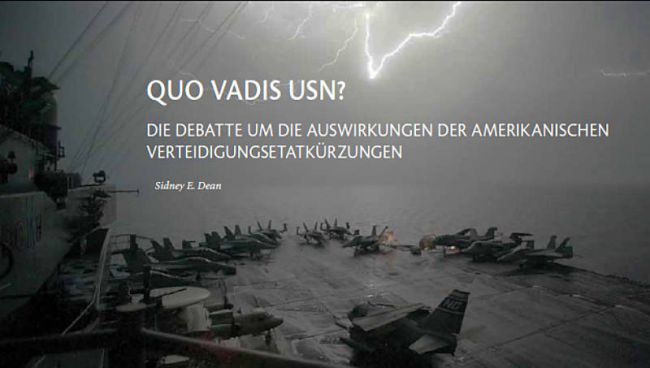Synopsis
The Arab League has moved towards action to halt the brutal crackdown on anti-government protesters in Syria. It has taken decisions to lay the ground for United Nations action against the Assad regime and strengthen calls for international intervention to stop the bloodshed.
Commentary
ARAB LEAGUE foreign ministers have given Syrian president Bashar Al-Assad a three-day window to halt the brutal crackdown on anti-government protesters, failing which they will take the matter to the United Nations. The League’s moves aim to prevent Syria sliding into civil war following increased fighting between the Syrian armed forces and significant numbers of military defectors, as well as mounting sectarian violence. The government crackdown has incurred 3,500 dead and thousands more wounded among the protesters, particularly in the city of Homs, a focal point of the eight-month old revolt against the Assad regime.
The League’s suspension of Syrian membership and decision to consult with the UN signal to the embattled Syrian leader that time is running out for his regime. It also puts on notice opponents of UN sanctions against Syria, particularly UN Security Council members Russia, China, India, Brazil and South Africa, that their refusal to back Western efforts to tighten the screws on the Syrian regime can no longer count on regional support for Assad to resolve the crisis with brute force. That is an attempt that has so far failed in the face of the protesters’ remarkable resilience and which the Arab League’s moves will make more difficult, if not impossible, for world and regional powers to tolerate.
Civil war looms large
Regionally, increased Arab League pressure and willingness to take the issue to the UN on humanitarian grounds can weaken Iran’s unconditional support for Assad, Iran’s foremost Arab ally. It strengthens those in Iran who believe that such support has increased the Islamic republic’s isolation from the region and prevented it from being part of a regional or international solution, notwithstanding recent Iranian calls for a halt to the bloodshed.
The spectre of a civil war in Syria with potential fallout in neighbouring countries increases pressure on opponents of international efforts to achieve a halt to the Syrian crackdown. It also will strengthen calls for and add pressure on the United States and Europe to consider military intervention despite their reluctance and distraction with their economic woes. To be sure, the Arab League explicitly ruled out international military intervention in Syria.
Meanwhile, Syrian assertions that the regime is confronting an armed rebellion rather than peaceful anti-government protests are becoming a self-fulfilling prophecy. They are said to have the covert support of Saudi funding for arms purchases in Lebanon and Turkey and tacit Turkish support for the Free Syrian Army made up of Syrian military defectors that is encamped on the Turkish side of the Syrian border.
The sense of Syria teetering on the brink of civil war is heightened by mounting signs of sectarian violence particularly in Homs, a predominantly Sunni Muslim city with a significant minority of Christians and Alawites, who have supported Assad. The battle lines in Homs between protesters and Assad’s forces are believed to have been blurred by the targeting of people accused of assisting the regime as well as its military and militias. Some 100 people have reportedly been killed in Homs in recent tit-for-tat inter-communal killings.
By increasing pressure on Assad, the Arab League is also pushing Syrian opposition forces to get their act together. The invitation to Syrian opposition groups to meet with the League in Cairo constitutes an effort to force them to form a unified front. The absence of such a front has in some ways helped Assad because of the lack of a clear opposition leadership and uncertainty about who might come to power if Assad were driven from office.
Sanctions start to bite
Finally, the League’s threat to impose sanctions if Assad fails to halt the crackdown within the three-day timeline significantly tightens the screws just when Western economic sanctions are being felt in Syria with the threat of a freeze on Arab investments and on assets of Assad associates in the Gulf. It would further make it difficult for countries like Russia, China and India to ignore Western and reject UN sanctions and continue to conduct business as usual with Syria.
Oil majors Shell and Total have reduced oil production in Syria because of the sanctions and in an indication of fiscal constraints Syria has stopped paying the two companies. Arab League sanctions increase the likelihood that the European Union will expand its sanction regime by making it illegal for international firms to maintain oil and gas investments in Syria. This would not only affect Shell and Total but also Canada’s Suncor Energy, Britain’s Petrofac, India’s Oil and Natural Gas Corp and the China National Petroleum Corporation (CNPC).
Nonetheless, despite the Arab League’s decision to finally put Assad on the mat and substantially increase pressure on him, there seems no immediate solution that will halt the bloodshed and help bring Syria back from the brink. Assad has painted himself into a corner with the brutality of his crackdown and failure to live up to his own promises, and many in the opposition are unwilling to consider an exit that would keep him in office. He has given no indication of being willing to leave and has warned that the fallout of intervention to remove him would shake the region to its core.
That could also be true if full-fledged civil war erupts, which seems inevitable if the crackdown continues and probably even if it is halted but Assad remains in office. The only solution is Assad’s departure; the question is at what cost that will be achieved in terms of Syrian lives and regional stability.
About The Author:
James M. Dorsey is a senior fellow at the S. Rajaratnam School of International Studies at Nanyang Technological University in Singapore and the author of the blog, The Turbulent World of Middle East Soccer.

 von
von 
